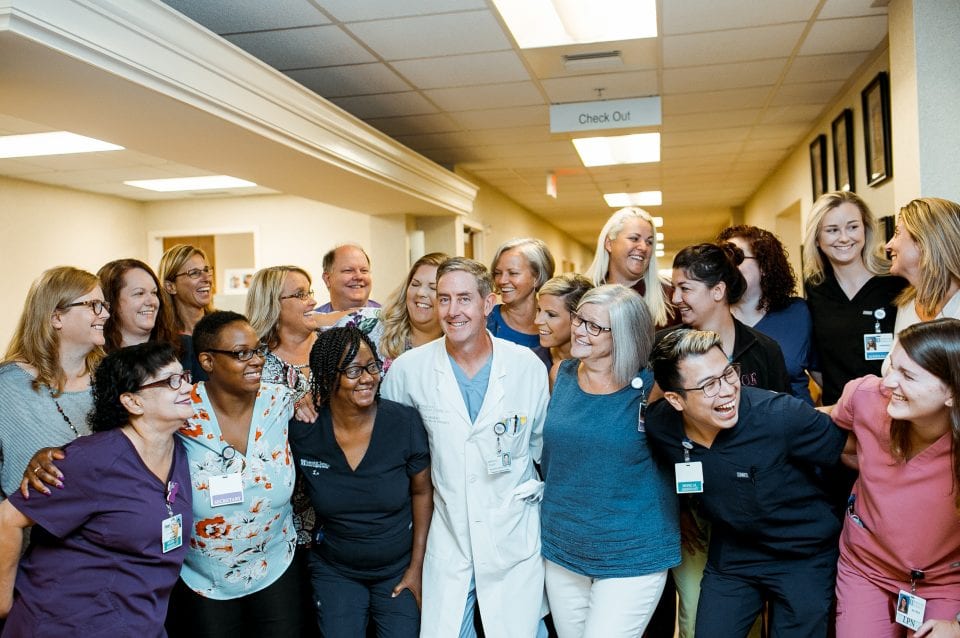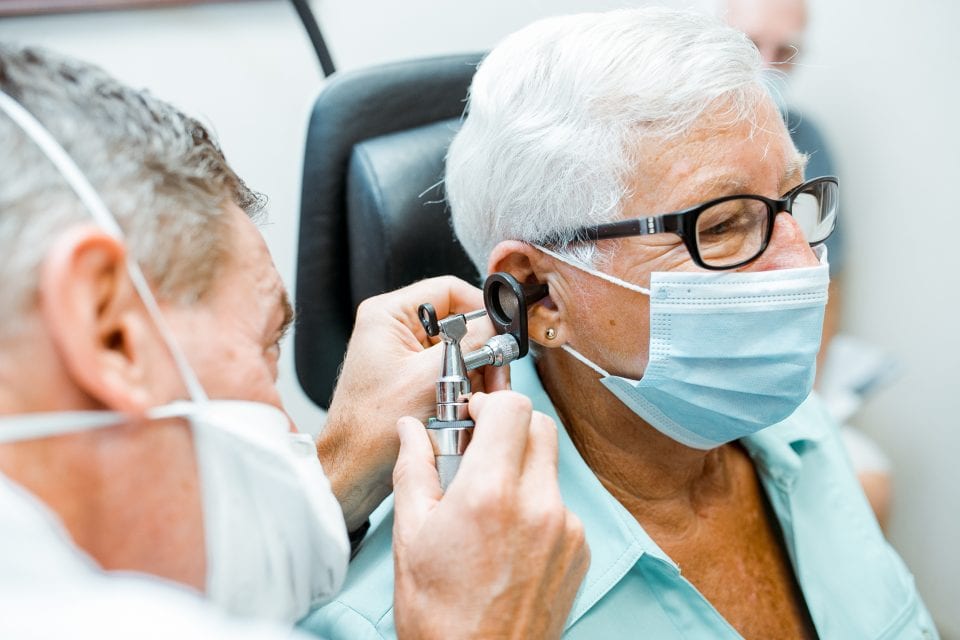
Ear, Nose, Throat, Head & Neck – Pediatrics
More than three million American children have a hearing loss, and an estimated 1.3 million of them are under three years of age. Parents and grandparents are usually the first to discover hearing loss in a baby, because they spend the most time with them. If at any time you suspect your baby has a hearing loss, discuss it with your doctor. He or she may recommend evaluation by an otolaryngologist–head and neck surgeon (ear, nose and throat specialist) and additional hearing tests.
Hearing loss can be temporary, caused by ear wax, middle ear fluid, or infections. Many children with temporary hearing loss can have their hearing restored through medical treatment or minor surgery.
However, some children have sensorineural hearing loss (sometimes called nerve deafness), which is permanent. Most of these children have some usable hearing, and children as young as three months old can be fitted with hearing aids.
Do children lose their hearing for reasons other than chronic otitis media?
Children can incur temporary hearing loss for other reasons than chronic middle ear infection and Eustachian tube dysfunction. They include:
- Cerumen impaction (compressed earwax)
- Otitis externa: Inflammation of the external auditory canal, also called swimmer’s ear.
- Cholesteatoma: A mass of horn shaped squamous cell epithelium and cholesterol in the middle ear, usually resulting from chronic otitis media.
- Otosclerosis: This is a disease of the otic capsule (bony labyrinth) in the ear, which is more prevalent in adults and characterized by formation of soft, vascular bone leading to progressive conductive hearing loss. It occurs due to fixation of the stapes (bones in the ear). Sensorineural hearing loss may result because of involvement of the cochlear duct.
- Trauma: A trauma to the ear or head may cause temporary or permanent hearing loss.
Early diagnosis is crucial in the management of pediatric hearing loss. When diagnosis is delayed, there can be significant impact on speech and language development. Early fitting of hearing or other prosthetic aids, and an early start on special education programs can help maximize a child’s existing hearing. This means your child will get a head start on speech and language development.
Schedule An Appointment
Make an appointment to speak with one of our Ear, Nose, Throat, Head & Neck specialists today.
Ear, Nose, Throat, Head & Neck Providers
Leading Ear, Nose, Throat, Head & Neck specialists in Pinehurst, Sanford, Hoke, Rockingham, Troy, NC and beyond.
Signs & Symptoms
The most common signs and symptoms experienced by our Ear, Nose, Throat, Head & Neck patients in Pinehurst, Southern Pines, and surrounding areas.
Pinehurst Surgical Clinic is a multi-specialty clinic comprised of ten specialty centers located in a state-of-the-art surgical facility in Pinehurst, NC. Our Ear, Nose, Throat, Head & Neck physicians provide allergy care and treatments at our Pinehurst, Raeford, Rockingham, Sanford and Troy clinical offices, serving patients in Southern Pines, Fayetteville, Red Springs and all surrounding areas throughout North Carolina, South Carolina, and beyond.



